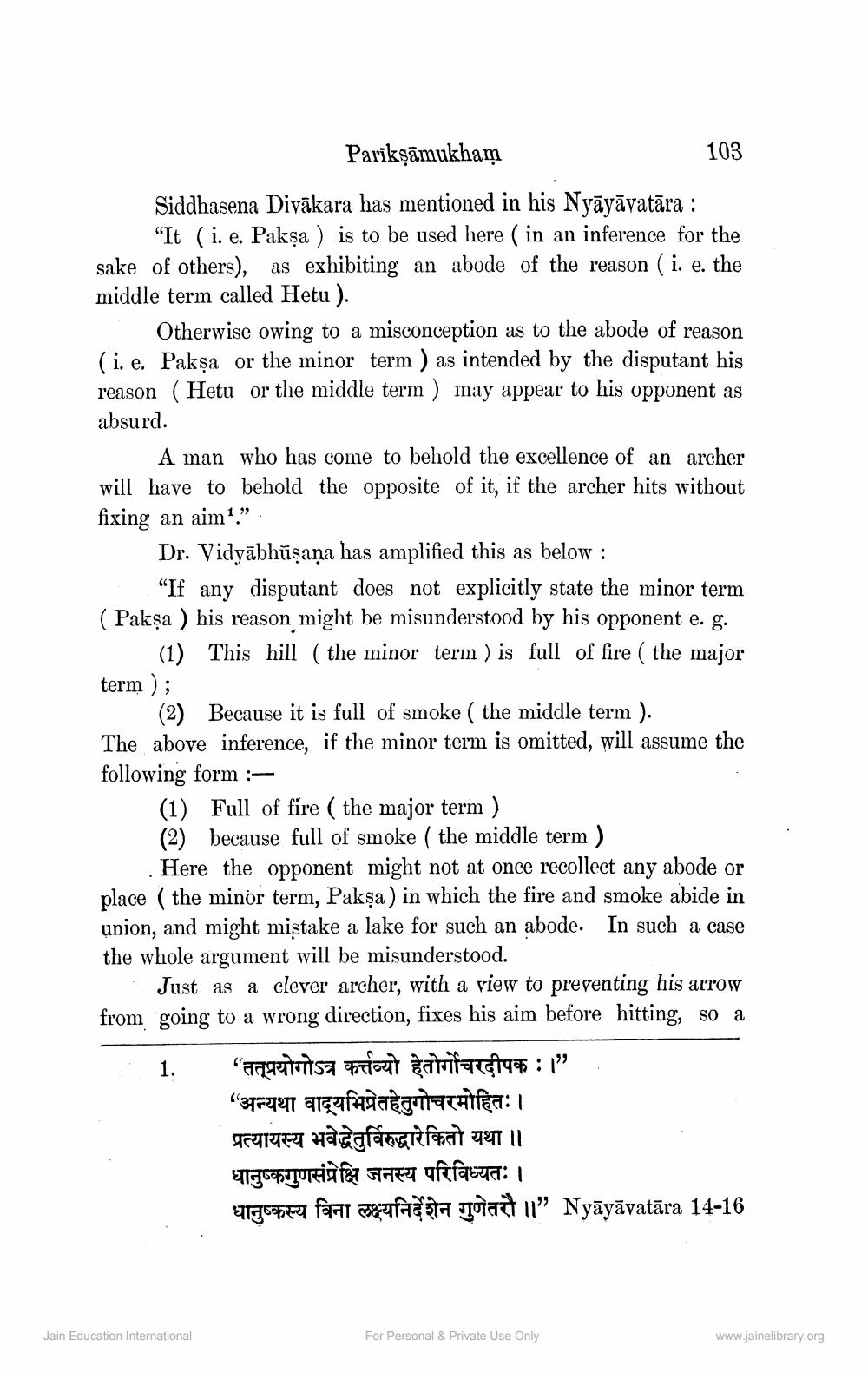________________
Parikşāmukham
103 Siddhasena Divākara has mentioned in his Nyāyāvatāra :
“It (i. e. Pakşa ) is to be used here ( in an inference for the sake of others), as exhibiting an abode of the reason ( i. e. the middle term called Hetu).
Otherwise owing to a misconception as to the abode of reason (i. e. Paksa or the minor term ) as intended by the disputant his reason (Hetu or the middle term ) may appear to his opponent as absurd.
A man who has come to behold the excellence of an archer will have to behold the opposite of it, if the archer hits without fixing an aim?.”.
Dr. Vidyābhūṣaṇa has amplified this as below :
"If any disputant does not explicitly state the minor term (Pakşa ) his reason might be misunderstood by his opponent e. g.
(1) This hill ( the minor term ) is full of fire ( the major term);
(2) Because it is full of smoke ( the middle term ). The above inference, if the minor term is omitted, will assume the following form :
(1) Full of fire ( the major term ) (2) because full of smoke ( the middle term )
Here the opponent might not at once recollect any abode or place ( the minor term, Pakşa) in which the fire and smoke abide in ụnion, and might mistake a lake for such an abode. In such a case the whole argument will be misunderstood.
Just as a clever archer, with a view to preventing his arrow from going to a wrong direction, fixes his aim before hitting, so a
Tagiisa attionit gatita ciu4:1" “अन्यथा वायभिप्रेतहेतुगोचरमोहितः । प्रत्यायस्य भवेद्धेतुर्विरुद्धारेकितो यथा ॥ धानुष्कगुणसंप्रेक्षि जनस्य परिविध्यतः । 9Tgsel faar zulasta quart II” Nyāyāvatāra 14-16
Jain Education International
For Personal & Private Use Only
www.jainelibrary.org




